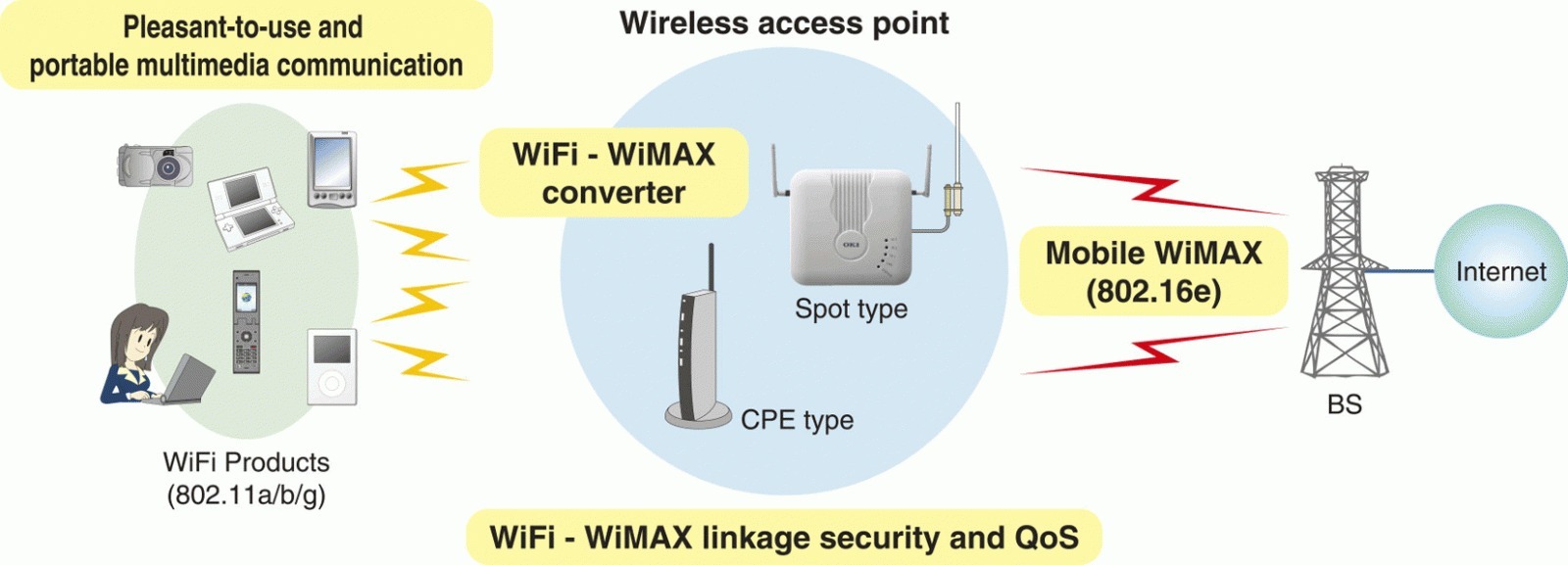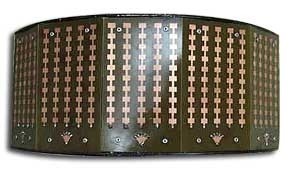WiMAX
WiMAX stands for Worldwide Interoperability for Microwave Access. WiMAX is a broadband wireless point-to-multipoint specification from the IEEE 802.16 working group.
Unlike wireless LAN technologies such as Wi-Fi (802.11), WiMAX is designed to operate as a wireless MAN (Metropolitan Area Network). This places WiMAX in the same class as the earlier 802.16 standards, MMDS and LMDS.
WiMAX Frequencies
WiMAX variants operate both on FCC licensed frequencies and on unlicensed frequencies.
Licensed WiMAX operates in the 10 to 66GHz range; unlicensed WiMAX operates in the 2 to 11Ghz range.
WiMAX Bandwidth and Range

WiMAX has a theoretical maximum bandwidth of 75Mbps. This bandwidth can be achieved using 64QAM 3/4 modulation. 64QAM can only be utilized under optimal transmission conditions. WiMAX supports the use of a wide range of modulation algorithms to enable the most bandwidth to be realized under all conditions.
WiMAX has a theoretical maximum range of 31 miles with a direct line of sight. Near-line-of-sight (NLOS) conditions will seriously limit the potential range.
In addition, some of the frequencies utilized by WiMAX are subject to interference from rainfade. The unlicensed WiMAX frequencies are subject to RF interference from competing technologies and competing WiMAX networks.
WiMAX Specifications
| Fixed/Mobile | Fixed |
| Circuit/Packet: | Packet |
| Max Bandwidth | 70 Mbps |
| Range | 31 miles |
| Frequency | 10-66GHz, 2-11Ghz |
| Host Network | N/A |
| Definer | IEEE (Institute of Electrical and Electronic Engineers) |
| URL | http://grouper.ieee.org/groups/802/16/ |
WiMAX Security

WiMAX achieved a jump start on security by adopting the mature DOCSIS BPI+ security protocol.
WiMAX authentication relies on PKM-EAP (Extensible Authentication Protocol) and TLS (Transport Layer Security).
WiMAX encryption uses CCMP (Counter Mode with Cipher Block Chaining Message Authentication Code Protocol), which uses the AES algorithm for data encryption.
WiMAX encryption also supports the earlier Triple DES standard.


Comments - No Responses to “WiMAX”
Sorry but comments are closed at this time.